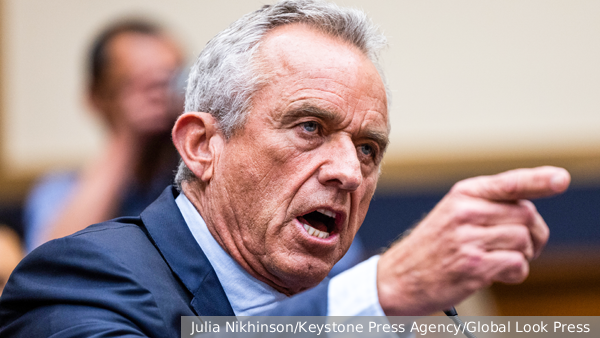How the Blight of Trumpism Has Swept across the US
How is it that a person with such a despicable personality and mediocre intellect, arrogant of word and disorderly of conduct, who caused more than 1 million deaths in the U.S. by mishandling the COVID-19 pandemic … how is it that a presidential candidate who refused to admit defeat after the 2020 election — and who did everything he could (including inciting violence) to overturn the founding American principle of a peaceful transition of power — gain the support of so many voters? Because Trump has discovered the weak spots in democratic American politics and, through his concerted provocation, has finally ignited the towering flames of war.
Because of automation, globalization and job outsourcing over the past three decades, there is a certain segment of the American public that has been broken on the wheel of the times, and have an accumulation of injustice, disappointment and anger. For the most part, these people are white Americans who have only a high school diploma, work in low-level blue-collar jobs, espouse evangelical religious beliefs, and live in rural areas. Not only are they economically disadvantaged, but the elite ridicule them over cultural values (elite values such as equal rights for ethnic minorities, abortion rights, same-sex marriage, transgender identity, etc.). Their sense of existential crisis — in which they are being attacked from all sides and are surrounded by the enemy — has only increased and deepened over time. Hillary Clinton derided them as a “basket of deplorables” in the most famous example of this kind of disdain. Seeing the pain, the grievances, the helplessness and the resentment of this group of voters, Trump made a high-sounding bid to stand up for them and seek justice, while at the same time adopting scorched-earth, “us-versus-them” stereotypical approach, identifying the university and media elite, urban professionals and the political establishment as enemies of the people. This ultimately catalyzed the rise of the irresistible populist movement, MAGA (“Make America Great Again”) and its core voter base.
Populism is not uncommon in the history of the U.S. President Andrew Jackson, the seventh president, was a populist who called on people to resist social injustice and the dictatorship of the upper classes. Trump has mixed populism with his personal style, skills and charisma to create an indestructible, once-in-a-lifetime political movement: Trumpism. It is characterized as much by its explicit and incendiary hate speech (such as “I am your voice … your warrior. I am your justice. And for those who have been wronged and betrayed, I am your retribution”) as it is for breaking social norms, skirting around the edges of the law and wreaking havoc among the current cultural elites and ruling political classes. Against this backdrop, the more Trump can make use of buffoonery and sophistry in his struggle for victory, the more the MAGA community’s love, belief and support for him deepen as they rally around him.
Once Trump had gotten hold of the white evangelicals, who are enthusiastic voters and account for 30–40% of the Republican electorate, he took advantage of the low turnout in the party’s primaries to significantly expand the MAGA faction’s influence in shaping the outcome of those primaries. He then forced the Republican establishment and those interested in running for office to either resign or surrender, bringing almost all current Republican senators, representatives and governors under his wing. After that, Trump enlisted those Republicans who wanted traditional conservative policies and values (e.g., low taxes, small government and self-reliance) and who would be conspicuous in a presidential election, such Republicans including the monied classes, Wall Street groups and those with strong moral values, such as Asian, Latino and African American voters. It is through these carefully orchestrated steps that Trump was ultimately able to gain firm control of the entire Republican Party machine and its voter base.
Both Joe Biden and Barack Obama took office after periods of unprecedented change: Biden's performance (COVID-19 pandemic) during his first term actually surpassed Obama's (financial crisis) in all aspects of legislation, administration and diplomacy. However, due to mistakes made in withdrawing from Afghanistan, Biden's age and deliberately reducing the amount of his media exposure, Biden’s public support has always hovered around the “barely satisfactory” mark. Under these circumstances, Trump’s strongman leadership qualities as projected through his self-aggrandizement and arrogance have proved quite attractive to jaded and troubled middle-of-the-road voters. In addition, many voters have felt powerless and exhausted by Trump’s endless destruction, interference in and subversion of the nation’s institutions, and this, too, gradually has eroded Biden’s support across the country.
For now, only two options remain that would allow Biden to defeat Trump. In the first option, Trump would be convicted of charges in at least one criminal case before the election, a result that would siphon off some Republican votes and reduce his approval rating by at least 5%. In the second option, Biden would shock Democrats and middle-of-the-road voters into realizing that, with a second term for Trump, American democracy faces complete destruction, prompting them to bite the bullet this year — albeit reluctantly — as they did for the Democratic Party in the 2022 midterm elections. Will the 250-year-old democratic experiment in the U.S. come to an abrupt end in November? All will soon be revealed.
The author is a joint professor at the National Tsing Hua University’s Department of Computer Science, Taiwan. This article was originally published in “Le Penseur” online magazine. Reprinted with permission.

